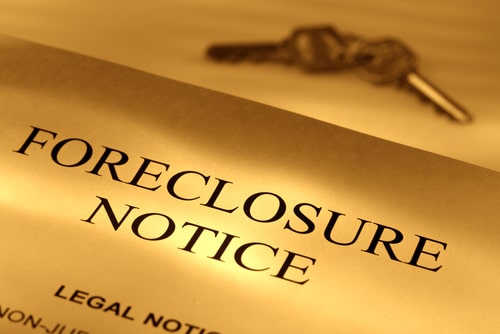1512 Artaius Parkway, Suite 300,
Libertyville, IL 60048
Call for a FREE Phone Consultation
847-549-0000
Video Consultations Also Available
Recent Blog Posts
Preparing Your Estate for Unexpected Health Crises
 One of the most beneficial things you can do for your estate is to make sure it is ready for any unforeseen health emergency. Proactive estate planning ensures that your preferences are honored and your family is supported in challenging times. An Illinois lawyer can help you with the essential components of estate planning and offer guidance on preparing for unforeseen events.
One of the most beneficial things you can do for your estate is to make sure it is ready for any unforeseen health emergency. Proactive estate planning ensures that your preferences are honored and your family is supported in challenging times. An Illinois lawyer can help you with the essential components of estate planning and offer guidance on preparing for unforeseen events.
Make Your Wishes Known to Your Advance Directives
One of the most important aspects of estate planning is creating advance directives. Illinois has two main types of advance directives: a healthcare power of attorney and a living will. A healthcare power of attorney allows you to choose someone you trust to make medical decisions on your behalf when you are unable to make them yourself. On the other hand, a living will specifies your preferences for end-of-life care, such as whether you want to be kept on life support.
How to Contest a Will in Illinois
 Losing a loved one is never easy, and dealing with their estate can add extra stress during an already difficult time. If you believe there are issues with the deceased’s will, you may wish to contest it in court. An Illinois lawyer can help you see if you have grounds to contest a will and how to go about it based on your situation.
Losing a loved one is never easy, and dealing with their estate can add extra stress during an already difficult time. If you believe there are issues with the deceased’s will, you may wish to contest it in court. An Illinois lawyer can help you see if you have grounds to contest a will and how to go about it based on your situation.
Grounds for Contesting a Will
In Illinois, there are several valid grounds that allow you to initiate a will contest:
- Lack of Testamentary Capacity: The deceased must have been of sound mind when creating their will. If you can prove they lacked the required mental capacity due to issues like dementia, the will could be invalidated.
- Undue Influence: If someone exerted excessive pressure or took advantage of the deceased’s weakened state to unfairly influence the will’s contents, you can argue the will is invalid due to undue influence.
Navigating the Foreclosure Process in Illinois
 The foreclosure process can be confusing and overwhelming for homeowners facing financial hardship. An Illinois attorney focused on real estate and foreclosure law can provide some guidance on the steps in the foreclosure process and your options as a homeowner.
The foreclosure process can be confusing and overwhelming for homeowners facing financial hardship. An Illinois attorney focused on real estate and foreclosure law can provide some guidance on the steps in the foreclosure process and your options as a homeowner.
Understanding the Foreclosure Timeline
The foreclosure timeline lays out the sequence of events from initial default on your mortgage through to a foreclosure auction of your home. This process is governed by Illinois law and real estate regulations. Some important milestones are the following:
- Notice of default: The first step after you miss payments. The lender sends you written notice of intention to foreclose if you do not repay the owed amount. You typically have 30-90 days to respond before further action.
- Filing of foreclosure case: If the default is not cured, the lender can file a foreclosure case in court outlining the missed payments and requesting permission to auction the home.
A Lawyer’s Guide: Purchasing a Home with a Mortgage
Purchasing a home is one of the most significant financial decisions most people make in their lifetime. For most homebuyers, securing a mortgage is an integral part of this process. While it may seem straightforward, numerous legal intricacies are involved in buying a home with a mortgage.
Facing Foreclosure and Bankruptcy? Know Your Rights
Facing foreclosure and bankruptcy can be an overwhelming and distressing experience. These situations can have far-reaching consequences on financial stability and peace of mind.
Foreclosure Defense: Everything You Need to Know to Fight Back
 The legal process of foreclosure has been historically inclined towards banks and lenders. This process demands homeowners to relinquish their homes to lenders upon defaulting on their mortgages. Despite the COVID-19 pandemic, with the government stepping in to retain homeownership, over 214,000 foreclosure lawsuits were filed in the US in 2020.
The legal process of foreclosure has been historically inclined towards banks and lenders. This process demands homeowners to relinquish their homes to lenders upon defaulting on their mortgages. Despite the COVID-19 pandemic, with the government stepping in to retain homeownership, over 214,000 foreclosure lawsuits were filed in the US in 2020.
However, many homeowners now resist foreclosure by delaying or completely stopping the proceedings using a legal strategy called foreclosure defense.
What Is Foreclosure Defense?
The primary objective of foreclosure defense is to establish that the bank doesn't have the legal right to foreclose. The likelihood of success heavily depends on a lawyer's ability to question the mortgage industry's operation.
Foreclosure defense seeks to exploit flaws within the system, presuming illegal or unethical behavior from lenders. This legal strategy offers homeowners a fighting chance against powerful financial institutions.
What Is Mortgage Loan Modification?

You've successfully closed on a loan and are prepared to make payments for the foreseeable future. However, life can throw unexpected curveballs, and suddenly, your once-affordable loan payment becomes a financial burden.
In such situations, the loan modification can become a saving grace, allowing you to retain your loan even when faced with altered circumstances. It isn't limited to just one type of loan; it can extend its helping hand to various loans, including student loans. Additionally, mortgage servicers often provide modifications as a lifeline to homeowners, ensuring they can avoid the looming threat of foreclosure.
This blog will detail what mortgage loan modification is and how it works.
The Fundamentals of Mortgage Loan Modification
What Is the Definition of Mortgage Loan Modification?
A mortgage loan modification is a procedure that allows homeowners to make important adjustments to their current mortgage arrangements.
 Stop Foreclosure
Stop Foreclosure

















